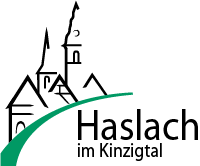Dienstleistungen
Von A bis Z
Bitte klicken Sie auf einen Anfangsbuchstaben, um sich die entsprechenden Dienstleistungen anzuzeigen:
Private universities - apply for state recognition
You would like to establish and operate a non-state educational institution as a higher education institution? To do so, you must apply for state recognition. With state recognition, the higher education institution may, within the scope of the recognition
- Hold higher education examinations,
- Award degrees (Bachelor's, Master's) and
- Issue certificates.
Note: Foreign educational institutions without state recognition in their country of origin that wish to establish a branch in Baden-Württemberg must also apply for state recognition. Foreign higher education institutions from EU member states do not have to apply for recognition.
State-recognised higher education institutions must bear one of the following additions in their name:
- "state-recognised higher education institution"
- "state-recognised university of applied sciences"
Note: As a sponsor of state-recognised higher education institutions, you are not entitled to state financial aid.
Responsible authority
the Ministry of Science
Details
Prerequisite
The prerequisite for recognition is that the higher education institution is equivalent to state higher education institutions. This means:
- The programme prepares students for a professional field of activity. It provides them with the knowledge, skills and methods required for this and for academic work. The range of courses is sufficient. The course of study is regulated by study and examination regulations. These correspond to the legal requirements for study and examination regulations of comparable degree programmes at state universities.
The following are important for the assessment of the courses offered:- Scope and structure of the training content (hours per week, subjects)
- Duration of training (years or number of semesters/trimesters)
- Examinations (number, type, duration, scope)
- There are several co-existing or consecutive study programmes at the higher education institution alone or in association with other educational institutions.
Exceptions:- Subjects for which the scientific development and the corresponding field of professional activity do not suggest the establishment of several courses of study
- ecclesiastical institutions of higher education, if they guarantee that the course of study is equivalent to a course of study at a comparable state institution of higher education
- The private higher education institution may only admit persons to study who also fulfil the requirements for admission to a state higher education institution (higher education entrance qualification).
- The full-time teaching staff shall fulfil the employment requirements for corresponding positions at state higher education institutions. A sufficient number of professionally qualified professors working full-time at the private higher education institution cover the core subjects of the teaching programme.
- The economic and legal position of full-time teaching staff is secured. This means that the regulations for teaching duties, remuneration and holiday entitlement must not deviate significantly from the regulations for teaching staff at state universities.
- Internal academic freedom is adequately secured. Above all, academic self-government must have a decisive influence on the appointment and dismissal of university management.
- The members of the higher education institution participate in the shaping of the course of study.
- Freedom to teach and study is guaranteed.
- The sponsoring institution of the higher education institution has sufficient financial resources and the necessary premises to ensure the operation of the higher education institution.
If the institution ceases to operate, you must ensure that the necessary funds are available for the enrolled students until they graduate. The institution must provide evidence of the following:- sufficient capital,
- a bank guarantee or
- a land charge
- The equivalence of the private educational institution with a state higher education institution must be proven within the framework of an institutional accreditation or concept review by the Science Council.
Procedure
You must apply for state recognition at the competent office. The written form is not required by law for the application. However, due to the extensive documents required, you must submit the application in writing, sign it by hand or provide a qualified electronic signature.
If the requirements are met and the institutional accreditation/concept review by the Science Council is successful, you will receive a notification of recognition. The name, seat and sponsor of the higher education institution as well as the recognised degree programmes are fixed with the recognition.
Note: If you subsequently wish to make significant changes (e.g. expansion to include further study programmes, change of the responsible institution), you must obtain the approval of the competent authority.
Deadlines
- Application: at least one year before state recognition
- Notification of significant changes (e.g. change of the seat or the sponsor): without delay
Note: If you wish to discontinue individual study programmes or the entire study programme, you must notify the Ministry of Science at least one year in advance. Students should be able to complete their studies properly.
Required documents
- comprehensive concept for a period of four to five years with the following information:
- Name
- Owner of the institution and its legal status
- Location
- Study programmes with training concept
- Staff
- Research
- Management structure
- Draft admission, study and examination regulations with curricula for the planned degree programmes
- Research concept (listing of research projects started and planned)
- Teaching staff concept with the following information on the members of the teaching staff:
- Qualification
- Type of employment
- Employment contracts for full-time teaching staff
- Draft basic regulations
- detailed financing plan over a period of four to five years with the following details:
- Personnel expenses
- Material expenditure
- Capital expenditure
- Revenue to cover this expenditure
- Documents proving secured financing (e.g. proof of capital assets, a bank guarantee, a land charge in a sufficient amount) - including possibly required official approvals
- Proof of the premises required for the operation of the institution of higher education (e.g. lease agreements, excerpts from the land register, permits for use from the building authorities)
- at the request of the competent body: expert opinion of an auditor as proof of the economic viability of the educational institution
Costs
- state recognition: EUR 2,500 - 7,500
- Approval of changes: approx. EUR 500.00 per degree programme depending on the effort involved
Processing time
If all the required documents are available, you must expect a processing time of at least one year, including the procedure for institutional accreditation/concept review by the German Council of Science and Humanities.
Miscellaneous
Revocation and withdrawal of state recognition
The Ministry of Science may revoke recognition if
- the requirements for recognition are no longer met, and
- You fail to remedy this deficiency in due time despite being requested to do so.
Expiry of state recognition
The state recognition expires if the institution of higher education does not continue its
- does not commence study programmes within one year of notification of the recognition decision,
- does not operate for more than one year without the consent of the Ministry of Science, or
- ceases to operate for good.


